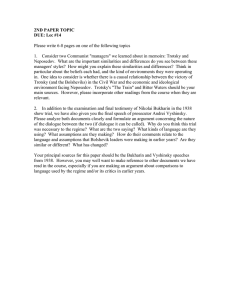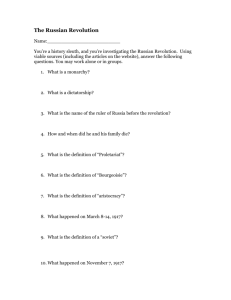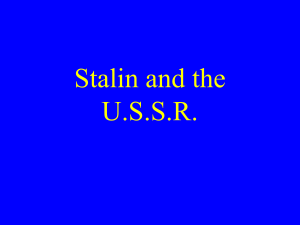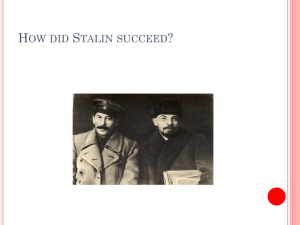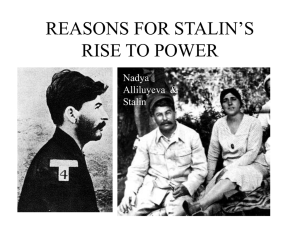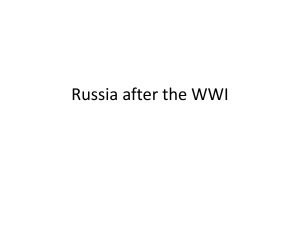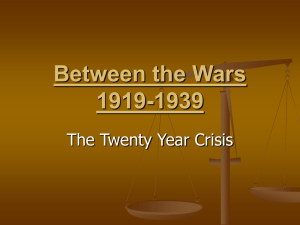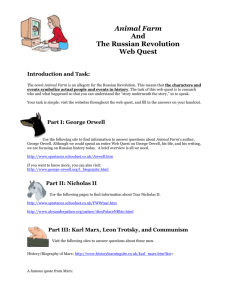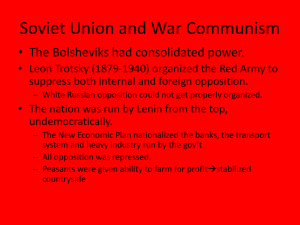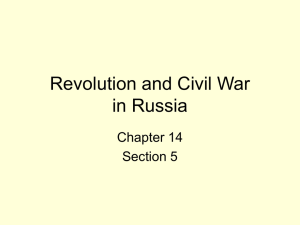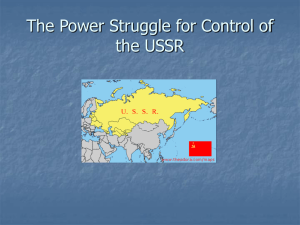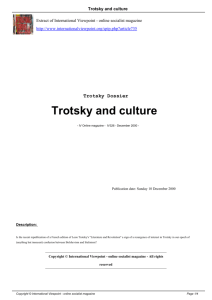Power struggle - essay plan
advertisement
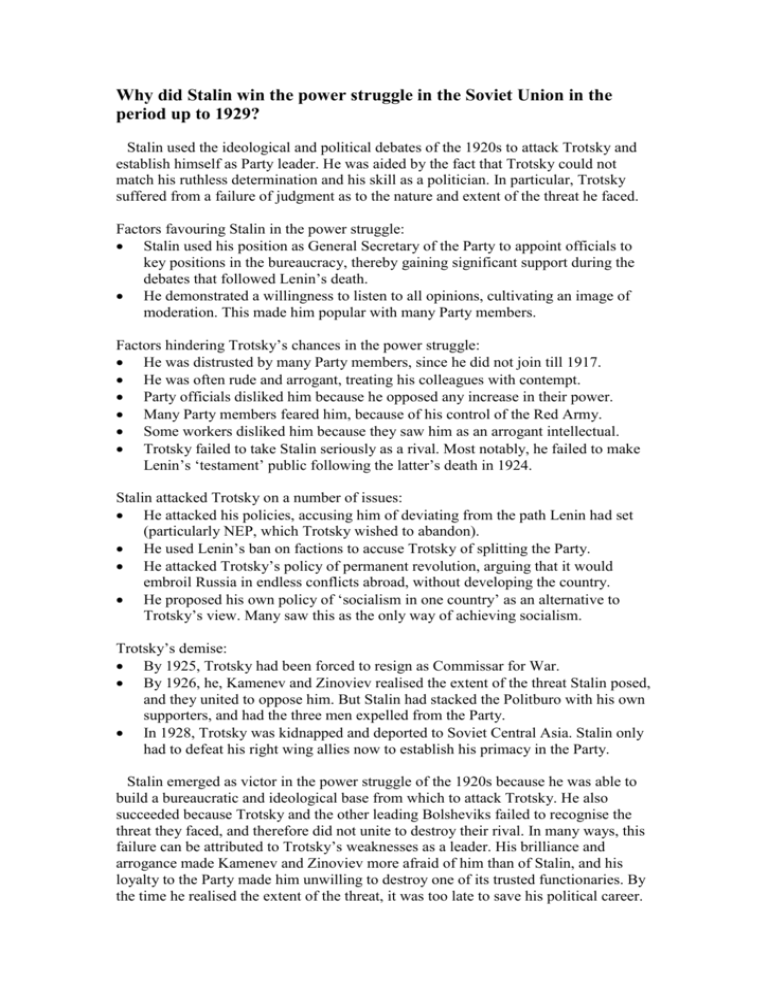
Why did Stalin win the power struggle in the Soviet Union in the period up to 1929? Stalin used the ideological and political debates of the 1920s to attack Trotsky and establish himself as Party leader. He was aided by the fact that Trotsky could not match his ruthless determination and his skill as a politician. In particular, Trotsky suffered from a failure of judgment as to the nature and extent of the threat he faced. Factors favouring Stalin in the power struggle: Stalin used his position as General Secretary of the Party to appoint officials to key positions in the bureaucracy, thereby gaining significant support during the debates that followed Lenin’s death. He demonstrated a willingness to listen to all opinions, cultivating an image of moderation. This made him popular with many Party members. Factors hindering Trotsky’s chances in the power struggle: He was distrusted by many Party members, since he did not join till 1917. He was often rude and arrogant, treating his colleagues with contempt. Party officials disliked him because he opposed any increase in their power. Many Party members feared him, because of his control of the Red Army. Some workers disliked him because they saw him as an arrogant intellectual. Trotsky failed to take Stalin seriously as a rival. Most notably, he failed to make Lenin’s ‘testament’ public following the latter’s death in 1924. Stalin attacked Trotsky on a number of issues: He attacked his policies, accusing him of deviating from the path Lenin had set (particularly NEP, which Trotsky wished to abandon). He used Lenin’s ban on factions to accuse Trotsky of splitting the Party. He attacked Trotsky’s policy of permanent revolution, arguing that it would embroil Russia in endless conflicts abroad, without developing the country. He proposed his own policy of ‘socialism in one country’ as an alternative to Trotsky’s view. Many saw this as the only way of achieving socialism. Trotsky’s demise: By 1925, Trotsky had been forced to resign as Commissar for War. By 1926, he, Kamenev and Zinoviev realised the extent of the threat Stalin posed, and they united to oppose him. But Stalin had stacked the Politburo with his own supporters, and had the three men expelled from the Party. In 1928, Trotsky was kidnapped and deported to Soviet Central Asia. Stalin only had to defeat his right wing allies now to establish his primacy in the Party. Stalin emerged as victor in the power struggle of the 1920s because he was able to build a bureaucratic and ideological base from which to attack Trotsky. He also succeeded because Trotsky and the other leading Bolsheviks failed to recognise the threat they faced, and therefore did not unite to destroy their rival. In many ways, this failure can be attributed to Trotsky’s weaknesses as a leader. His brilliance and arrogance made Kamenev and Zinoviev more afraid of him than of Stalin, and his loyalty to the Party made him unwilling to destroy one of its trusted functionaries. By the time he realised the extent of the threat, it was too late to save his political career.
